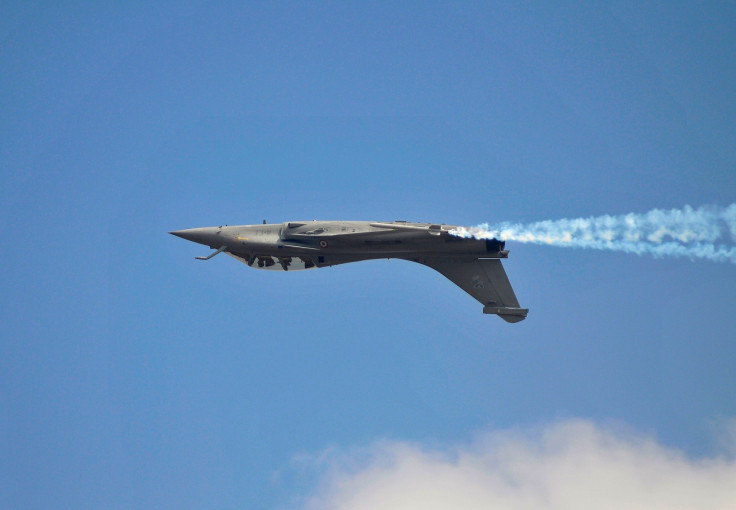Narendra Modi's Make In India campaign attracting foreign firms at Aero India
Top defence firms eyeing to exploit the growing Indian market with lucrative arms deals.

Despite a low-key inauguration and the conspicuous absence of the usual fervour at the air show-cum-aviation exhibition, Aero India, leading defence firms from across the world appear keen to exploit the "Make In India" opportunity set in motion by Prime Minister Narendra Modi.
With deals worth billions of dollar up for grabs, top military contractors are currently camped in the southern Indian city of Bengaluru, to participate in the five-day biennial extravaganza. The air show is a platform set up by the Indian government in 1996 to boost the aerospace and defence sectors and capitalise on the growing Indian market. The 11th edition of the show was inaugurated on Tuesday (14 February) by the country's Defence Minister Manohar Parrikar in the presence of chiefs of the armed forces.
However, the absence of Modi and the host state's Chief Minister Siddaramaiah did not go unnoticed at the high-profile event, which is being touted as Asia's premier air show.
Some of the big names participating include US manufacturers Lockheed Martin, Boeing; Britain's Rolls-Royce, BAE Systems; France's Dassault Aviation and Swedish defence major Saab.
Moreover, comments made by foreign delegates include words such as "co-manufacture" and "co-develop" that show their eagerness to partner with Indian companies at the sprawling Yelahanka Air Base. Banners of the overseas firms also did not shy away from embracing Modi's Make In India initiative.
In the hopes of hard-selling their military equipment to India, traditionally a country with a heavy dependency on arms import, more than 500 firms from Russia, Europe, Israel, the UK, and the US are exhibiting their products. The toughest challenge for them would be to overcome bureaucratic hurdles and adhere to strict government regulations as they look to setting up manufacturing bases in the country, in partnership with Indian firms.
When asked about the rapidly changing political environment in the Western world especially the US, the defence minister said, "What I will say is what I want... I want you to Make in India. If someone wants to shift production to some other place, it is his choice. I am not concerned."
Speaking at a press conference, Parrikar revealed that India needs about 1,000 civilian aircraft, 300-400 fighter jets, and 800-1,000 helicopters over the next 10 to 15 years making the country one of the most lucrative markets for defence deals in the world. Additionally, the country also requires routine replacement and maintenance of antiquated equipment. Only in early February, India earmarked Rs2.74tn (£33bn) for its annual defence budget – a marginal rise from the previous year.
© Copyright IBTimes 2025. All rights reserved.




















